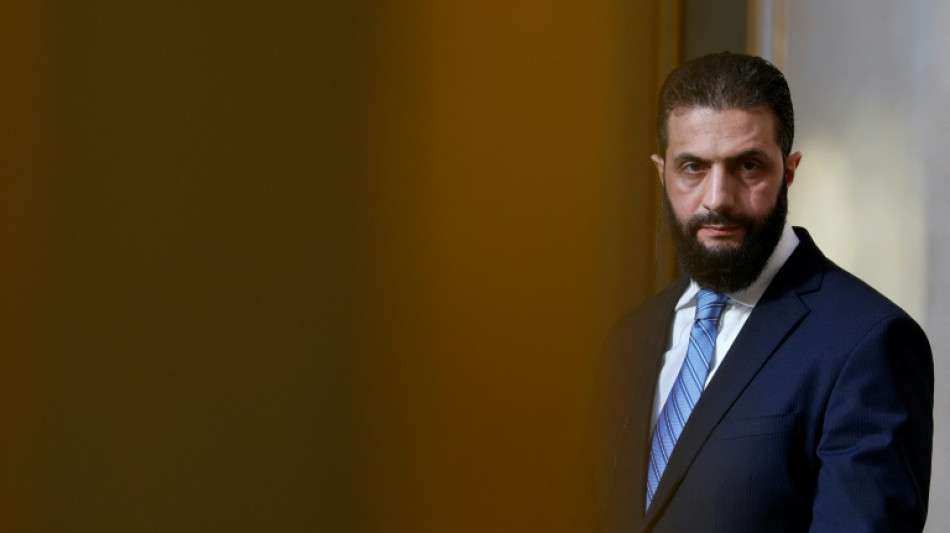
-
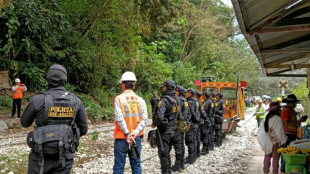 Peru evacuates 1,400 tourists from Machu Picchu amid protest
Peru evacuates 1,400 tourists from Machu Picchu amid protest
-
Trump arrives in UK for historic second state visit
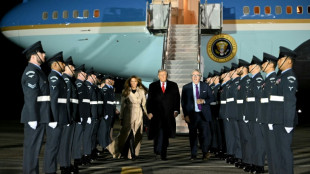
-
 Arsenal, Real Madrid win Champions League openers, Juve snatch dramatic draw
Arsenal, Real Madrid win Champions League openers, Juve snatch dramatic draw
-
Friends like these: NY to get 'Central Perk' cafe from beloved sitcom
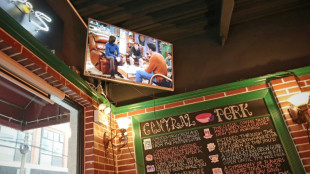
-
 Mbappe penalty double gives Real Madrid opening win over Marseille
Mbappe penalty double gives Real Madrid opening win over Marseille
-
Juve salvage point against Dortmund with stunning late comeback
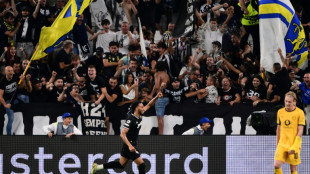
-
 Redford's Sundance legacy hailed by filmmakers
Redford's Sundance legacy hailed by filmmakers
-
Spurs accept Villarreal gift to make winning start in Champions League
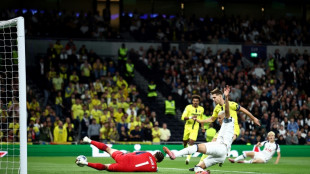
-
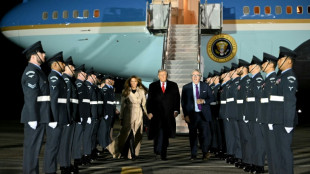 Trump arrives in Britain for unprecedented second state visit
Trump arrives in Britain for unprecedented second state visit
-
'A better future is possible': Youths sue Trump over climate change
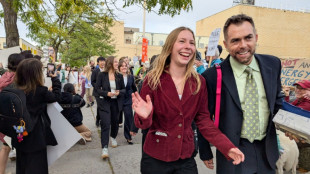
-
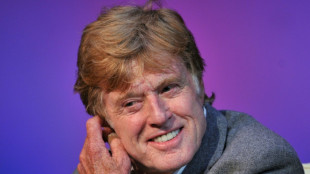 Redford's Sundance legacy 'beyond comprehension' for US filmmakers
Redford's Sundance legacy 'beyond comprehension' for US filmmakers
-
Vuelta protests 'a completely new phenomenon', says Tour de France director
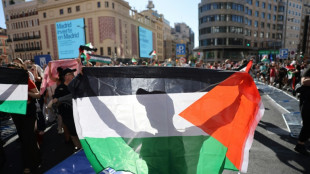
-
 Bangladesh beat Afghanistan to stay alive in Asia Cup
Bangladesh beat Afghanistan to stay alive in Asia Cup
-
Trump extends delay on US TikTok ban until mid-December
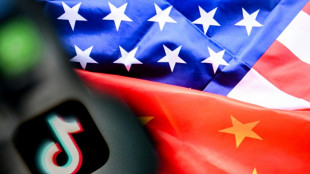
-
 YouTube ramps up AI tools for video makers
YouTube ramps up AI tools for video makers
-
Arsenal subs snatch win in Bilbao Champions League opener
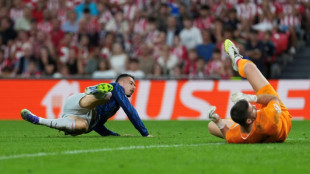
-
 Downton Abbey auction of props and costumes smashes estimates
Downton Abbey auction of props and costumes smashes estimates
-
Windsor prepares for global spotlight with Trump state visit
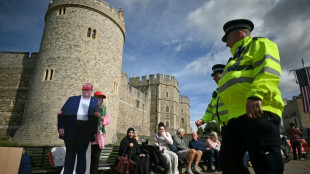
-
 Suspect in Charlie Kirk killing charged with murder
Suspect in Charlie Kirk killing charged with murder
-
France duo out of Women's Rugby World Cup semi-final as bans upheld
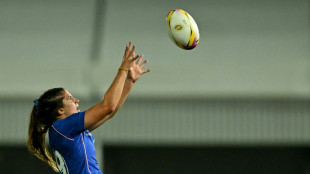
-
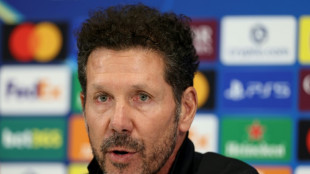 Simeone backs Atletico to hurt 'extraordinary' Liverpool
Simeone backs Atletico to hurt 'extraordinary' Liverpool
-
IEA says more oil and gas investment may be needed
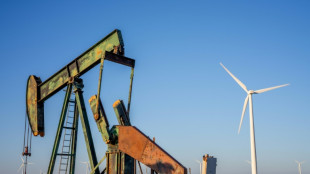
-
 Sabrina Carpenter, Justin Bieber, Karol G to headline Coachella
Sabrina Carpenter, Justin Bieber, Karol G to headline Coachella
-
Colombia halts US arms purchases in row over drug fight delisting
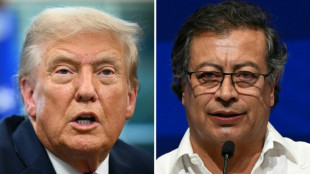
-
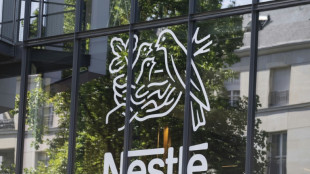 Nestle says chairman Paul Bulcke to step down
Nestle says chairman Paul Bulcke to step down
-
Isak set for Liverpool debut in Atletico Madrid Champions League clash

-
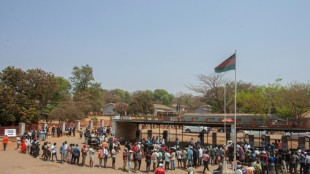 Malawi votes in economic gloom as two presidents battle for power
Malawi votes in economic gloom as two presidents battle for power
-
No info in files that Epstein trafficked women to others: FBI chief
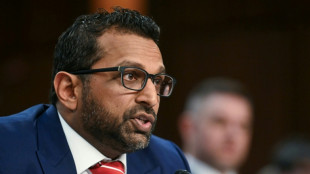
-
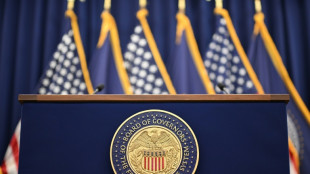 Stocks slip, dollar down as Fed meets on rates
Stocks slip, dollar down as Fed meets on rates
-
Faith Kipyegon: Supreme Kenyan champion and role model for mothers

-
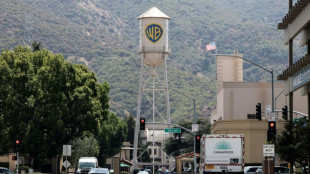 Hollywood giants sue Chinese AI firm over copyright infringement
Hollywood giants sue Chinese AI firm over copyright infringement
-
Bayern's Kane keen to rekindle London rivalry against Chelsea

-
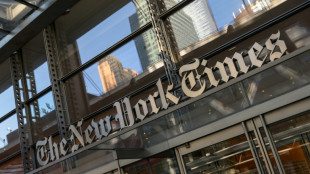 Trump sues NYT for $15 bn in latest attack on media
Trump sues NYT for $15 bn in latest attack on media
-
IndyCar reveals 17-race 2026 season with March opening

-
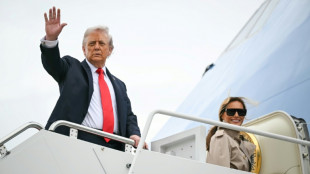 Trump heads for landmark state visit with 'friend' King Charles
Trump heads for landmark state visit with 'friend' King Charles
-
Kipyegon sparkles, Tinch's time away pays off with world gold

-
 Kerr completes Kiwi world double after Beamish tonic
Kerr completes Kiwi world double after Beamish tonic
-
US Fed opens key meeting after Trump aide sworn in as governor
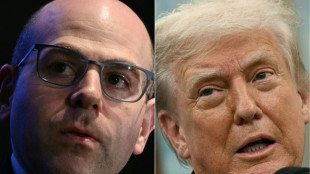
-
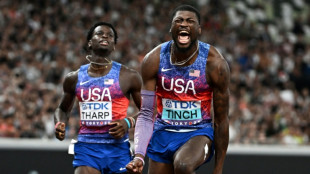 Tinch crowns atypical path to top with world hurdles gold
Tinch crowns atypical path to top with world hurdles gold
-
Masters deal with Amazon Prime boosts US TV coverage hours
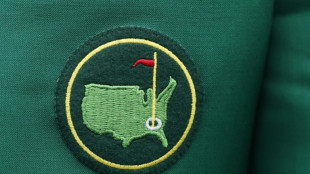
-
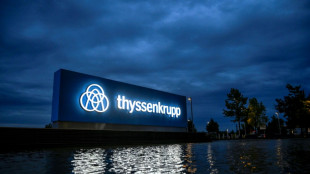 Thyssenkrupp says India's Jindal Steel makes bid for steel business
Thyssenkrupp says India's Jindal Steel makes bid for steel business
-
Germans turn to health apps as insurers foot the bill

-
 Robert Redford, Hollywood's golden boy with a Midas touch
Robert Redford, Hollywood's golden boy with a Midas touch
-
US retail sales beat expectations in August despite tariffs

-
 New Zealand's Kerr wins world men's high jump gold
New Zealand's Kerr wins world men's high jump gold
-
American Cordell Tinch wins world 110m hurdles gold
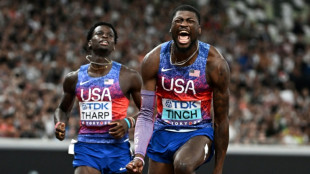
-
 Kenya's Kipyegon wins unprecedented fourth women's world 1,500m title
Kenya's Kipyegon wins unprecedented fourth women's world 1,500m title
-
Suspect in Kirk killing to be charged in US court

-
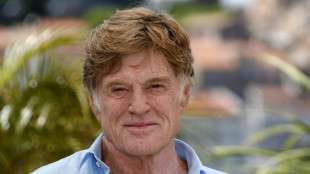 Cinema legend Robert Redford dead at 89
Cinema legend Robert Redford dead at 89
-
Europe slow to match economic rivals US, China: Draghi
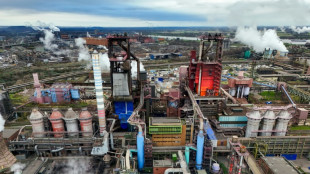

Sharaa's pullout from Syria Druze heartland exposes shaky leadership
Under Israeli bombardment and diplomatic pressure, Ahmed al-Sharaa pulled troops from Syria's Druze heartland -- a move that exposes the interim leader's weakness just as he sought to assert control.
Since seizing office in December after ousting longtime autocrat Bashar al-Assad, Sharaa has worked to recast himself from jihadist to statesman, even earning praise from US President Donald Trump as a "tough guy".
But in the early hours of Thursday, he was forced to announce the withdrawal of troops from the Druze-majority city of Sweida, framing it as an effort to avoid confrontation with Israel and prevent further destabilisation in a country still reeling from 14 years of war.
AFP looks at what drove Syria's interim president to this withdrawal -- and whether his leadership is now fatally undermined.
- 'Imbalance of power' -
In his Thursday speech, Sharaa praised the "effective intervention of American, Arab and Turkish mediation, which saved the region from an unknown fate".
That followed Israeli air strikes targeting the Syrian military headquarters and the vicinity of the presidential palace in Damascus.
It also came amid diplomatic pressure from the United States.
Gamal Mansur, a comparative politics researcher specialising in Syrian and Israeli studies at the University of Toronto, said he believed "the withdrawal was imposed on the authorities due to the imbalance of power caused by Israel's presence".
Syria "was forced to retreat because its position in Sweida was not that strong and it was unable to retain the land in Sweida without a high price that would force a second Israeli intervention", he said.
Sharaa admitted on Thursday that his options to avoid "open war" with Israel were limited.
Israeli Prime Minister Benjamin Netanyahu said the ceasefire in Syria was "obtained by force" and "not by demands, not by pleas".
A senior Western diplomat, who requested anonymity due to the sensitivity of the topic, told AFP that Sharaa "is very aware of the situation that he is in and he is realistic".
"He knows Syria is at a weak point and that the best option is to reach a deal with the Israelis."
Heiko Wimmen, project director for Iraq, Syria and Lebanon at International Crisis Group, said Sharaa's pullback showed he was "making a further step towards accepting that Israel basically projects power onto the doorstep of Damascus".
Since leading the overthrow of Assad, Sharaa has repeatedly said his country does not seek conflicts with its neighbours.
Damascus has acknowledged holding indirect talks to reduce tensions with Israel, which has occupied Syria's Golan Heights since 1967.
The Israeli army deployed troops into the UN-patrolled zone on the Golan after the fall of Assad and launched hundreds of bombing raids.
Mansur believes the Sweida events "will place Israel in a better position and with stronger negotiating terms".
The Western diplomat said that while full normalisation was unlikely, Israel could still reach a favourable security agreement with Syria.
- Internal pressure -
Sharaa and his government have been pushing for unified control of the country from Damascus, with the various armed factions, often tied to ethnic or religious identities, merged into the state's armed forces.
That goal was undermined by the events in Sweida, which remains outside Damascus's direct control, and major sectarian clashes like the coastal massacres in March, during which more than 1,700 mostly Alawite civilians were killed.
Sharaa's ability to control armed factions loyal to him, which include extremist groups and foreign jihadists, was heavily questioned following those incidents.
Washington had previously demanded that "foreign terrorists" leave Syria.
These developments reveal "the weakness of Sharaa's authority", Mansur said, adding the Syrian leader needed to consolidate his authority and secure control over the state's security apparatus.
Additionally, the Kurds in northeastern Syria are still demanding a decentralised system despite repeated rejections by Damascus.
Bedran Ciya Kurd, a senior official in the autonomous administration, said on Thursday that Damascus should "review" its attitude towards minorities.
Syria's Kurds may be in a stronger position after the Sweida clashes, according to Wimmen, who said there was now a "big question mark" over the idea of full integration with Damascus.
The Kurds now have "many reasons to be very careful about any form of integration", he said.
J.Marty--VB
